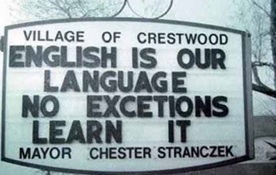 It's that time. Students who can afford to relax - don't; some come to grips with academic and personal goals for the first time; and some need help getting out of bed at the crack of noon.
It's that time. Students who can afford to relax - don't; some come to grips with academic and personal goals for the first time; and some need help getting out of bed at the crack of noon.I feel it - but you can't step in the same river twice (Heraclitus), and the water's different for everyone.
Teachers hustle to keep up with grading - and judging/evaluating takes its toll - and can result in little patience for ... how do real people say insouciance? Where can we find motivation?
Needing empathy, I started my own iSearch. I forgot that databases tell you were to find info - but often don't have direct link/ download. It can make you feel like you're in over your head.
Check google scholar if your school library doesn't have a journal or source you need - and if that fails interlibrary loan is pretty quick - talk to a librarian. I should walk the class thru it. The process for tracking down sources changes every 6 months, but once you get the hang of it, you can figure it out and it can be fun.
The important thing: try something new. Look in new places. Have fun.
Perhaps we should collectively reassess our goals and objectives. Please check out the video. I especially noticed the phalanx at 2:30... the paramilitary utilitarian outfit and choreography had to influence Public Enemy. They make a statement on the paradox of fitting into a system that encourages uniform expression, while discovering one's own voice: intense emotional engagement while simultaneously detached and objective - or cold and mechanical.
It's performance art/punk rock at its finest; Devo flourished in the shadow of disco - and made a bigger impact in Europe and Japan than in the Midwest, tho they did help pioneer the music video. Mark Mothersbaugh - front man - you may know from The Rugrats, or any of a bunch of movie soundtracks. That dude can compose: visually, musically and lyrically.
Another of Devo's songs could sum up my andragogical theory, our course objectives, and the idea - or more accurately a reaction to an idea, that explains most decisions I made up until 2002. Haven't reassessed my life re: said song since. The message is in the vein of Lloyd's dinner party speech from Say Anything.
I'd probably get in trouble for showing you the music video in question - or even using it's name in print.
BTW anyone else want to read Punk Power in the First-Year Writing Classroom? It'd better live up...


